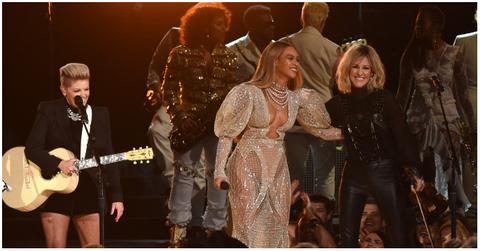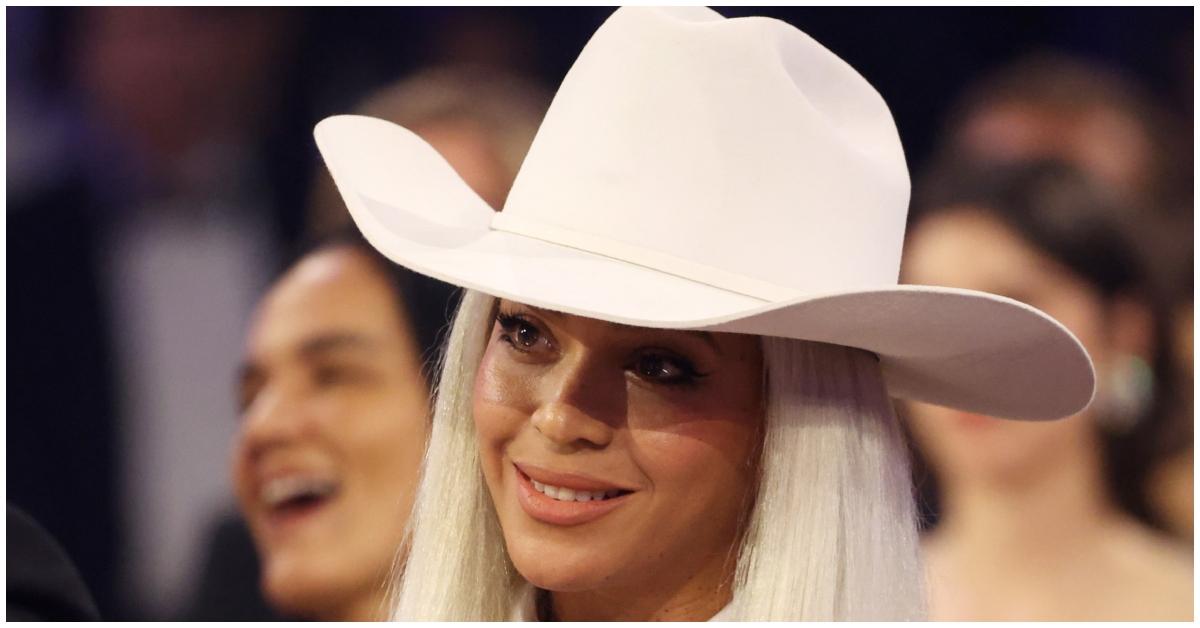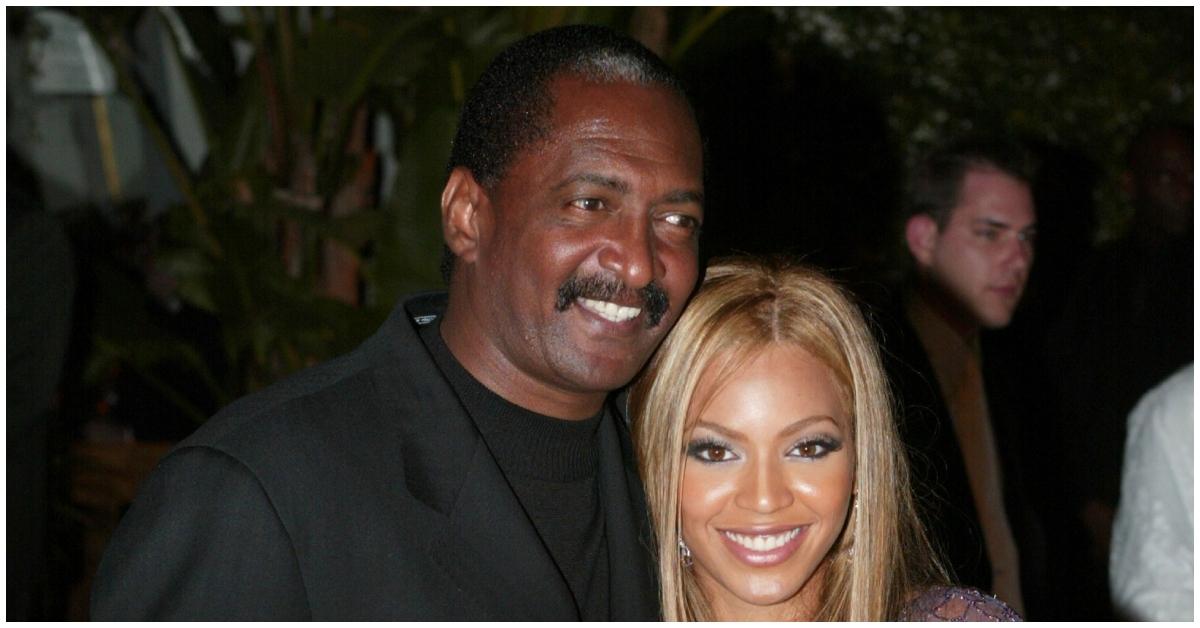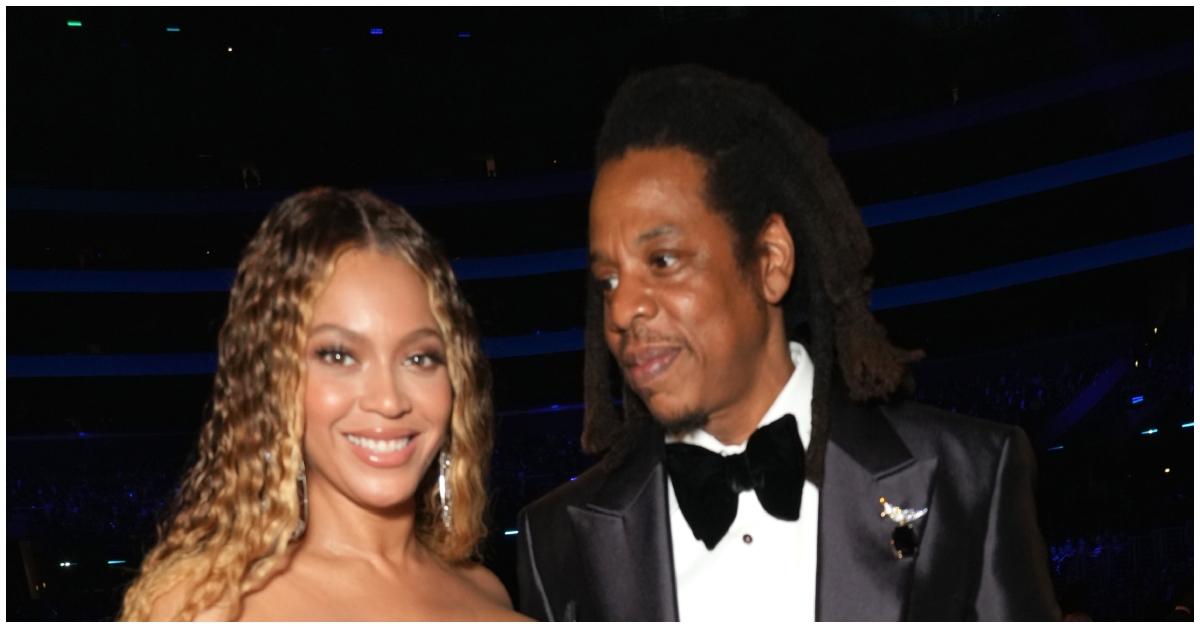Beyoncé Teased Her Love for Country Music With "Daddy Lessons" — What Does the Song Mean?
Beyoncé's 2016 single, "Daddy Lessons" as long been rumored to be about her father, Mathew Knowles' infidelity.
Published Feb. 12 2024, 11:55 a.m. ET

While many tuned into the 2024 Super Bowl expecting a football game, some goofy commercials, and what some nicknamed an Usher concert, Beyoncé shook up the celebratory evening with a surprise Verizon commercial that ended with her saying, “Drop the music” in her quest to break the internet. Sure enough, Beyoncé broke the internet and had the Beyhive scrambling to find the new music she referenced.
Beyoncé released two tracks, “Texas Hold ‘Em” and “16 Carriages,” from her March 2024 album, Act II. Following her 2022 masterpiece, Renaissance, the album will be a country album and pay homage to Bey’s Texas roots.
Beyoncé’s pivot to country music seems like a significant leap to some. However, those following her career know she’s previously teased a passion for country songs.
In 2016, she debuted a song, “Daddy Lessons,” which she performed at November's Country Music Awards. Over the years, there have been theories about what Beyoncé’s country song means.

What does “Daddy Lessons” by Beyoncé mean?
“Daddy Lessons” was one of Beyoncé’s singles on her April 2016 album, Lemonade. Beyoncé stans will know that Lemonade was a candid body of work that showed Beyoncé struggling to forgive her husband, Jay-Z, for cheating on her at some point in their relationship. Beyoncé’s “Daddy Lessons” has long been rumored to be about her feelings about her father, Mathew Knowles, and the parallels between her and her parents’ marriage.
At the beginning of “Daddy Lessons,” Beyoncé sings, “Came into this world/Daddy's little girl/And daddy made a soldier out of me /Daddy made me dance.” The “solider” and “daddy made me dance” sections are seemingly Beyoncé’s nod to her dad’s early influence on her career, as he was her manager until 2010, one year before he and her mother, Tina Knowles, divorced. Beyoncé also mentions in the song, "My daddy said shoot,” and taught her how to shoot a gun to “Take care of your mother/Watch out for your sister.”

Later in the song, Beyoncé hints that her father wasn’t always the best example of a good man. In the chorus, Bey sings, “He held in his arms/And he taught me to be strong/He told me when he's gone/’Here's what you do/When trouble comes in town/And men like me come around/Oh, my daddy said shoot/Oh, my daddy said shoot.”
The lyrics suggest that Mathew, whose affair with Alexsandra Wright led to his and Tina’s divorce, knows that there are men like him in the world and wants to protect his daughter from them as much as possible. Due to Lemonade’s theme of forgiveness after heartbreak, it seems as if Mathew is trying to show Beyoncé that her husband, Jay-Z, or men in general, are “playing you,” and he can tell because he’s been one of those men.

Beyoncé’s “Daddy Lessons” struck controversy among country music listeners.
While “Daddy Lessons” seemingly provided a way for Beyoncé to heal and reflect on her and her father’s once-strained relationship (Beyoncé and Mathew have since reconciled), her song rubbed many country music fans the wrong way. Following the debut of her single on her album, Bey collaborated with The Chicks on another iteration of “Daddy Lessons.” She then performed the song with the trio at the CMA Awards, causing an uproar among conservative country music listeners.
As Vox reported in 2016, the responses to Beyoncé and The Chicks’ performance ranged from questions about Beyoncé’s political, liberal stances on issues like the Black Lives Matter movement to racist remarks online from those who felt Beyoncé didn’t belong at the CMA Awards. The award show later amplified the comments after the CMA’s social media team deleted a post of the performance, causing many to believe the corporation was siding with Beyoncé’s racist naysayers.
Many believe that Beyoncé’s 2024 country music album is her way of showing how the genre began as “Black music” and, with time, has been overshadowed by white artists’ contributions. Like Renaissance, some think Beyoncé is reclaiming the genre to prove that Black artists did it first, like most entertainment trends. Bey, of course, will likely let her music keep the discourse going.